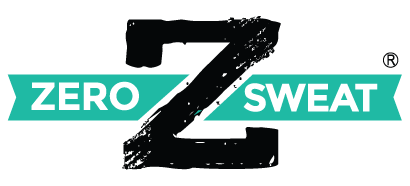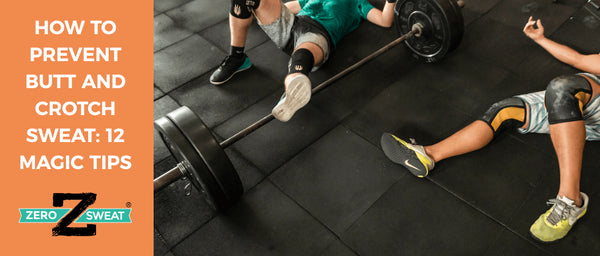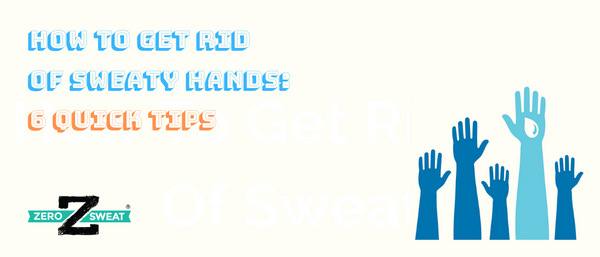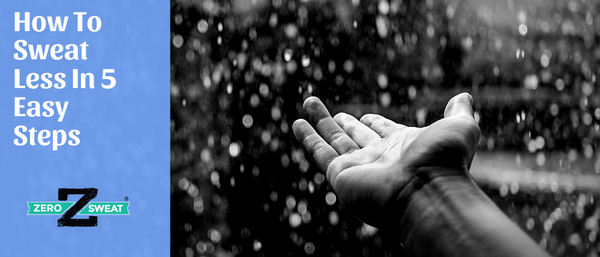What Is Hyperhidrosis And How Can I Treat It?
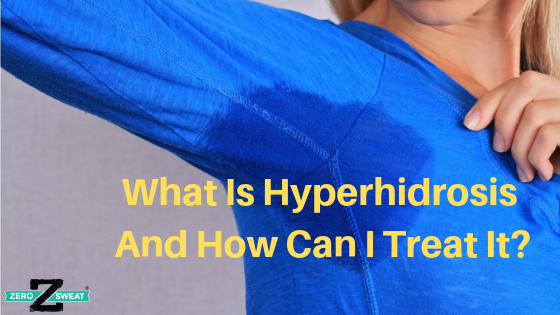
Based on Web MD, it is estimated that 2-3% of the people in America suffer from hyperhidrosis, excessive perspiration. Of these millions of wet and unhappy people, most do not know that this excessive sweating is a medical condition and about half of them do not think there is a treatment option for them. So, if you are tired of changing your wet shirt or blouse during the day due to your excessive sweating, you may have hyperhidrosis. Here are a few questions to ask yourself:
- Do most of your tops have underarm stains?
- Do wet underarms affect your daily activities?
- Do you have wet underarms most days regardless of temperature or your activity level?
- Do you wear mostly black to cover up the wet underarms (the blackout)?
- Do you keep your arms at your sides when hugging a friend (the under hug)?
- Do you often bring 2-3 changes of clothes with you everywhere you go due to wetness?
- Do you sometimes shower more than once per day because of sweatiness?
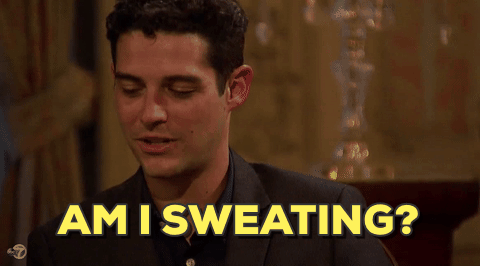
If you answered yes to most of these questions, you have hyperhidrosis. After learning more about the symptoms and possible solutions, you’ll be able to recognize that ZeroSweat is among the safest, easiest, and most convenient hyperhidrosis treatments on the market.
What is Hyperhidrosis and is this condition a life sentence to unending embarrassment?
Perspiration is a natural and healthy human occurrence, the body's natural air conditioning - if you will. The evaporation of the sweat off the body's surface cools the surface. If you are outside and it is hot or you are strenuously exercising, your body sweats in order to cool down.
The brain triggers the body to sweat due to hormones, emotions, a hot environment, or physical activity. This brain stimulus is sent to your sweat glands. There are two main types of sweat glands:
- Apocrine Glands – found in specific areas such as the underarm and groin (see the graphic below).
- Eccrine Glands – found throughout the body.
Any part of the body can be affected, but the most common are the underarms, faces, hands, feet, chest areas, and groin.
Although neurologic or infectious type systemic diseases may sometimes cause hyperhidrosis, most cases occur in people who are otherwise healthy, from teens to seniors. Geography and climate do not have any bearing on the condition; there aren’t higher concentrations of people who suffer from the condition in hotter climates, contrary to popular belief. Many who suffer from hyperhidrosis sweat nearly all their waking hours, regardless of their mood or the weather. The body's mechanism for cooling itself is too overactive for its own good. However, when this happens, it comes with significant psychological and social burdens since it interferes with daily activities.
There are two kinds of hyperhidrosis:
Secondary generalized hyperhidrosis: this type of excessive sweating is caused by an underlying medical condition or a side effect to medication. This hyperhidrosis is usually sweating over large areas of your body, thus called generalized. It usually starts in an adult upon the onset of the medical condition or the beginning of taking the medicine and often will result in sweating at night while sleeping. Conditions such as alcoholism, diabetes, gout, obesity, heart failure, menopause, cancer, hyperthyroidism, and rheumatoid arthritis are a few of the known medical conditions that may cause secondary hyperhidrosis. The term for the drug-induced sweating is diaphoresis.
Primary focal (localized) hyperhidrosis: this type of excessive sweating for no apparent reason and is the medical condition itself. It occurs in specific areas of the body (focal areas) such as hands, feet, underarms, and/or head and face. Of course, the medical community have medical terms for the specific areas that excessively sweat; axillary hyperhidrosis is the extreme wetness of the underarms and palmoplantar hyperhidrosis is the sweating of the palms and feet.
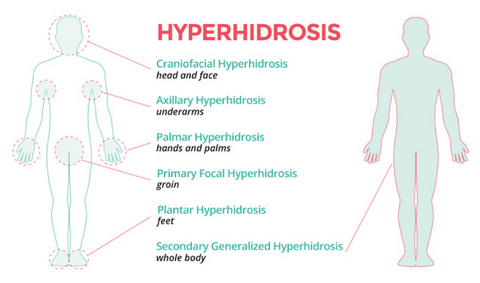
Excessive sweating can be embarrassing and can have negative side effects on many areas of your life. Most people are not familiar with hyperhidrosis which makes explaining it very difficult. As you can well imagine, Hyperhidrosis can affect your romantic life.
If you don’t suffer from Hyperhidrosis, it is difficult to understand how embarrassing and inconvenient it is when you sweat all the way out of a blouse, dress shirt, or even a suit when you are in a business meeting and your face is dripping sweat. None of that builds confidence in your presentation skills. Also, it gives the appearance that you are nervous.
When you go to shake hands with friends or new acquaintances and your palms are wet, you’ve probably tried to nonchalantly wipe your hands on your clothes. This can be pretty embarrassing! When you have Hyperhidrosis, there is no shortage of activities and scenarios that can really cause some mental anguish.
- Meeting new people
- Interacting with loved ones
- Times of intimacy
- When you work with your hands
- Playing a musical instrument
- Trying to use a smartphone which requires dry fingers
I have noticed that I tend to drop things when I try to pick them up because of my sweaty hands. Not a particularly good thing when using knives or picking up glass items! Any of these can lead to depression and/or a lack of confidence.
A few common questions that people ask are:
Can I outgrow hyperhidrosis with age?
Probably not. If your excessive sweating is the primary focal type, it is probably caused by a family genetic predisposition and therefore, you will not likely outgrow it.
Can excessive sweating lead to dehydration?
Yes. If you lose more water through profuse sweating than you drink, you may dehydrate. The normal non-active person needs eight to 12 glasses of water per day. If you sweat excessively, you should increase your water intake.
Is hyperhidrosis a sign of anxiety?
Maybe. It is difficult to tell whether anxiety causes excessive sweating or if excessive sweating causes the anxiety: a chicken and egg type of deal. In other words, there is a possibility that social anxiety may cause hyperhidrosis. This is a good question for you to discuss with a medical professional.
Does hyperhidrosis cause body odor?
Perspiration is just salt water, so it does not create body odor in and of itself. But when you sweat, and it comes in contact with normally occurring bacteria on your skin. This produces the smell, that can be rather potent.
Why do I sweat after showering?
Most people shower in warm to hot water. This signals to your body that you are hot and in need of cooling off. Sweating occurs as your body's cooling mechanism.
Who does hyperhidrosis mostly effect?
It affects men and women equally and most commonly occurs among people aged 15–70 years old.
Sadly, camouflaging the symptoms of excessive sweating does little, if anything, to treat the root cause of the condition. Here are a variety of measures that hyperhidrosis sufferers can do to make the best of their situations:
- Reduce your caffeine intake: caffeine stimulates the nervous system which activates your sweat glands.
- Start using a clinical-strength antiperspirant like ZeroSweat with a high concentration of Aluminum Chloride (15% is recommended), as it will reduce your sweat gland production. Apply it to clean underarms at night when sweat gland production is low for best results.
- Wear breathable natural fabrics to help cool your skin.
- If weather conditions permit, wear flip-flops. If the weather permits, wear socks, hosiery, and footwear that allows your feet to breathe.
- Always have a spare shirt and undergarments available for changing when you get to wet. Call it your sweat escape kit. You don't know when it will strike next.
- Keep a "sweat log" detailing the days and times of day you sweat the most. You may find a pattern of what triggers your excessive sweating.
- By reducing your alcohol intake, you might also see a reduction in perspiration.
Another approach is a treatment called iontophoresis. This is a device that passes a mild electrical current through water (using a shallow pan for hands or feet or specific pads for other body areas) and through the skin's surface.
If, after exhausting your options for natural remedies, diet, clothing and wardrobe adjustments, you could look into a more significant financial investment in your dryness. At this point, you could have laser surgery for your hyperhidrosis. Lasers can precisely target, heat, and destroy the sweat glands which are found in a specific layer of tissue under the skin of the underarms. Tiny incisions, which are often so small they don't even require a stitch, are made in the underarms to allow the laser tool to be passed under the skin. Because of the cost and inconvenience, this option would be the last resort.
When used correctly, according to the included instructions, ZeroSweat can make a huge impact on your life and keep you dry and looking cool when that was not a possibility in the past.
How ZeroSweat Works
ZeroSweat is absorbed into the glands and forms a block while you sleep. You will be dry in the morning. It doesn't leave a residue, it doesn't wash off and it lasts for days. You will not know that it is there but you sure will know that it is working. No mess, no surgery, no more sweating!
Although ZeroSweat’s antiperspirant roll-on is meant for underarms, it can be used anywhere you have localized sweating. For a different, more convenient application, you can also use the antiperspirant lotion on hands, feet, or even your face. If you want to put a damper on your hyperhidrosis and avoid wet and stained pits, no more sopping shirts, no more dripping neck and face. Besides the cost of a couple of cups of coffee, you have nothing else to lose.
In some cases, the product can last up to seven days. Stay dry, friends!
ZeroSweat Products That Help With Hyperhidrosis
